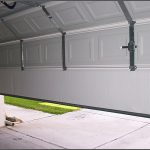The entire purpose of securing a fixed mortgage loan is so that you have peace of mind in knowing exactly how much you will pay each month on your house note. While the interest rate you pay on your mortgage will not change when you have a fixed mortgage loan, you should be aware of the fact that your mortgage payments can technically go up when you have an escrow account set up to fund third party expenses. If you receive a notice that there has been a monthly adjustment that will be increasing your mortgage payment, don’t panic. Here’s a straightforward guide to understanding rising mortgage and escrow payments.
Reasons for an adjustment in escrow account funding
When you apply for a mortgage, most lenders prefer that you set up an escrow account that will be funded monthly to cover expenses like property taxes and homeowners insurance. Before your mortgage is funded, the loan processor will calculate the estimated cost for property taxes and insurance. They will then divide the total into even monthly payments and add this amount to your mortgage payment so that the escrow account is funded properly.
While it is more convenient for a home buyer to make a single payment to their lender rather than individual payments, you can run into problems when you are funding an escrow account. Loan servicing departments only review tax bills and insurance bills and assess whether or not the monthly payment that goes into your escrow account needs to be increased once a year. If your tax bill or your insurance bill has increased, you will receive a notice that your monthly mortgage payment has been increased because of an escrow account adjustment. Keep in mind that your interest payments and principal payments are not being adjusted just because there is an escrow account adjustment.
Escrow account shortages and how they can affect you
For the first 6 to 12 months, you should have no problems when it comes to escrow account shortages. This is because the lender will require that you deposit the first 6 or 12 months of the payments that go towards insurance and taxes into the account before your escrow will close. It is after the initial funds have been used that you should start preparing for escrow account shortages.
Property taxes change on a regular basis, and miscalculations or increases in property value can translate into a shortage in your escrow account. While homeowners insurance rates do stay level for a year, upon renewal it is likely that your rates can increase. This will result in an escrow account shortage if the lender does not take action and may the necessary adjustments. While higher mortgage payments are not ideal, they are necessary when insurance rates change. If it makes you feel better, you would still be paying the rising rates if you did not have an escrow account in place.
If you receive a letter from the loan servicing department, it is in your best interest to speak with the lender to verify which bills have gone up. Verify with the county assessor’s department that your property taxes are correct, and start budgeting for future increases so that you are prepared in the future.
Post Author: andyc.




